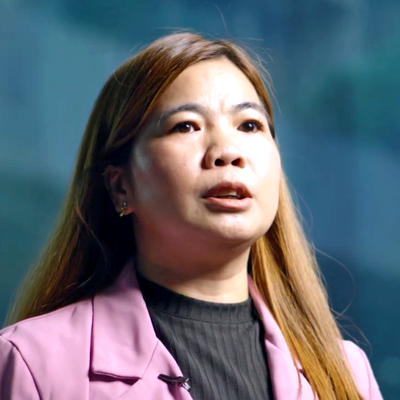
OVERVIEW
About This Programme
The Higher Diploma in Computer Science (HDCS) further builds upon the skillsets of the Diploma in Information Technology. It provides one with a solid grounding in subject areas, preparing one for a career in IT and computer science across a wide spectrum of industries, and is suitable for those who wish to prepare themselves for essential roles in the workplace requiring technical expertise, or as a progression pathway to higher education.
Upon completion of the HDCS, students will have attained strong skillsets and requisite domain knowledge, and may progress to degree programmes at the University of East London and may be eligible to gain advanced standings for certain course selections. Students are encouraged to bring their own laptop for practicing laboratory practical exercises.
CIMA and ACCA accredited degree
8 month | fulltime
fast track degree
Practical and theoretic modules
Guided career sessions
MODULES
A programme to designed to explore beyond subject knowledge
By the end of the programme, graduates will be able to demonstrate the accounting and finance related knowledge, which will be further developed and integrated into broader business knowledge, skills and professional values and ethics.
Informations Systems Modelling & Design
This module introduces relevant concepts and theories in the field of Human Resource Management and provides students with the knowledge, understanding and key skills in relation to HRM. It provides an insight into international diversity in HRM, allowing them to compare the role, activities, and institutional frameworks of human resource management in different national contexts.
Maths for computing
This module introduces the basic concept of quantitative approaches to computing mathematics. This module will help students to attain essential knowledge in mathematical concepts and skills that are required for the study and application of computer science.
Software Devlopment
This module provides students with technical skills, communication skills, to develop applications by coding, testing, debugging, documenting, and reviewing in accordance with object-oriented programming standards for development and security. The module focuses on programming fundamentals such as introduction to computers and object-oriented programming, basic computation, variables, control structures, arrays, and the procedural programming methodology. It then progresses to introduce the object-oriented programming concepts of objects, classes, and inheritance.
Computer Systems & Networks
This module focuses on fundamental computer architecture, network fundamentals, protocols, and models. This module introduces the categories of the network functions, evaluates, and justifies networks, and device performance using the OSI model and the most widely used TCP/IP protocol suite.
Web Technologies
This module provides students with practical skills to examine, translate complex software ideas and concepts into a web application and establish key design principles and methodologies. Students can select and use appropriate tools and techniques with which to design, build, implement, and test a web application. This module also provides the opportunity to gain work skills to be able to provide professional documentation for the web pages produced.
Cloud Computing
This module provides students with a detailed and essential foundation in cloud computing. Cloud computing is the up and rising technology that will be considered critical in today’s business world. This introductory module to cloud computing describes and explains fundamental aspects of cloud computing concepts, models, technologies, and applications.
Database Management Systems
This module introduces students to the database which is fundamental to current business information system activities. A database typically provides features to enhance compactness, reliability, flexibility, and Internet applicability. Students will be introduced to the concepts and fundamentals of database systems. Students will be able to specify and create a database model, including the setting of various parameters that can be modified to suit different structured or unstructured data requirements, the design of data, as well as the development of mechanisms for maintenance, storage, and retrieval of data based on the business requirements. An open-source database tool is considered for verifying the features.
Data Communications & Networks
This module introduces students to and gives a clear understanding of how networks from in-home local area networks (LANs), to the massive and global Internet, are built and how they allow us to use computers to share information and communicate with one another.
Management of Information Systems
This module introduces students to the vital role of information systems in supporting an organisation’s business processes and enhancing decision-making capabilities. The strategic implications of information systems will be analysed, and students will be introduced to decision-making processes, data analytics, risk management, and IT audit for managing an information system for an organisation.
Data Structure and Algorithms
This module introduces students to the fundamentals first approach which builds a strong foundation of advanced programming data structures, algorithms, concepts, and techniques. This module introduces students to programming in a problem-driven way that focuses on problem-solving rather than syntax, illustrating advanced data structure concepts by example, and provides hands-on practical laboratory exercises for students to gain programming and technical skills.
Advanced Programming
This module will focus not only on the Java programming language, but also the Java programming style and topics on advanced software design using Java and Java’s network programming. This course covers the techniques of object-oriented programming in Java and the characteristics of the Java programming language. The language features such as event-driven programming, GUI, Collection classes, packages, exception handling, and multithreading with concurrent programming are discussed. Java graphical user interface and animation tools are important parts of this course. Advanced topics such as network programming, threads, and sockets are introduced with an executable example.
Mobile App Development and Web
This module introduces students to how to develop applications for Android smartphones and tablets. It demonstrates the need to know how to successfully develop your own Android applications. It also addresses all the fundamentals; including user interfaces, networking, SMS messaging, and databases. It is a practical module primarily for those who wish to extend their programming ability beyond and to deploy their own Android Apps themselves in the market.
Practicum/Research Project
This module provides an opportunity for students to undertake a task of a suitable size that allows him/her to apply the appropriate skills and knowledge learned in the Higher Diploma. It is normally expected that the project will involve, in addition to evidence of meeting targets in the area of self and time management, relevant background reading and research, and use of appropriate tools and techniques for design and development. Work produced here must be of professional competence suitable for the level of the Higher Diploma course. Students will undertake a significant piece of individual applied academic work in an area of their own interest relevant to, and demonstrating technical skills acquired in, their programme of study. Students will normally need to research one or more academic topic areas and then apply their findings to the construction and implementation of a computer-based system
Full programme structure and learning outcomes
Get detailed breakdowns and learn about the advantages of learning with LSBF Singapore.
what to expect
Prepare for a Career in Law
Programme Aims
The Higher Diploma in Computer Science (HDCS) aims to achieve an international standard of high-quality training that will lead to a universally recognised qualification, enabling graduates to pursue undergraduate programmes at top universities. The course also aims to equip students with technical skills and competencies to develop applications based on design specifications; encompassing coding, testing, debugging, documenting and reviewing, and/or refining it across the application development stages in accordance with defined standards for development and security. The technical skill includes the analysis and possibly the reuse, improvement, reconfiguration, addition, or integration of existing and/or new application components.
The HDCS course aims to provide students with the ability to:
- Design and be able to implement high quality and robust software products with secure features, run routine application tests, and conduct debugging to resolve errors
- Professionally analyse and design information systems
- Demonstrate effective interpersonal skills when working in groups or leading teams
- Professionally communicate and present proposals, findings, and results
- Pursue higher level studies at universities
Learning Outcomes
Graduates of the Higher Diploma in Computer Science should be able to understand and apply, within the employment context, basic theories, and concepts.
Upon successful completion of this HDCS programme, students should be able to:
Present proposals and recommendations in a professional and efficient manner
Analyse user requirements and design solutions both efficiently and effectively
Elaborate and propose information systems that meet user requirements and demands
Propose, evaluate, and implement computerised solutions to meet varying levels of user requirements
Develop applications in line with design specifications, utilising a range of tools, methodologies, programming, and externally developed codes
Review recommendations to improve the overall functionality, usability, and security of applications against cost, efficiency, and viability considerations
Gain an understanding of the concepts of fundamental principles and technologies in information technology
Gain technical expertise in the field of information technology, which enables one to excel in this fast-developing area
Gain insights into the relationship between information technology theory and practice
Gain appropriate software development, programming skills, and critical thinking skills
Recognise the management, economic, legal, social, professional, and ethical issues relating to information technology
Learn and work both independently and within groups
Develop the necessary study skills and knowledge to pursue further study
Develop the professional skills necessary for a career in the IT industry
Possess effective communication, teamwork, and leadership skills
Skills you will acquire

$92,000+
median Singapore salary for Accounting
483,000+
Singapore job openings in Accounting
75%
of graduates report positive career outcome
programme structure
computer requirements
| Description | Minimum | Recommended |
| Computer and processor | 1.6 GHz or faster, 2-core Intel Core i3 or equivalent | 1.8 GHz, 2-core Intel Core i3 or equivalent |
| Memory | 4 GB RAM | 8 GB RAM |
| Hard Disk | 256 GB disk size | N/A |
| Display | 1280 x 768 screen resolution (32-bit requires hardware acceleration for 4K and higher) | N/A |
| Others | An internet connection – broadband wired or wireless Speakers and a microphone – built-in or USB plug-in or wireless Bluetooth A webcam or HD webcam – built-in or USB plug-in | N/A |
teacher student ratio
40:1 for Lecture/classroom/Seminar
24:1 for Computer Lab
Structure and Assessment
Assessment methods may vary according to individual module requirements and each module is assessed by:
Students may advance to attempt the AWS/PANW Certification examination and will be awarded a certificate meeting the AWS/PANW Educate Certification examination requirement.
Continuous Assessment, Formative and Summative Assessments
Any combination of class participation, group or individual applied assignments, tests or online quizzes, portfolio, practical examinations, and written examinations
Attendance requirements
STP holders: 90%
Non-STP holders: 75%
STUDENT SUPPORT SERVICES
Why choose LSBF for your education
Study Materials
Students will receive study materials after they have made full payment for their programme. Replacement of study materials is subject to additional charge.
Student Portal
Students have access to the Student Portal. It is a useful site where the course information and learning materials are available for students’ easy reference.
Accessible Faculty
Students may contact their lecturers directly via email outside the lecture hours for any academic related queries.
Recorded Lectures
We will show compassion and care to all stakeholders as we believe the journey is as important as the outcome.
ELIGIBILITY
Who can apply for this programme
Lorem ipsum dolor sit amet, consectetur adipiscing elit, sed do eiusmod tempor incididunt
ut labore et dolore magna aliqua. Ut enim ad minim veniam, quis nostrud exercitation
Minimum Age Requirement
18 years or above
Minimum english language Entry Requirement:
- Achieved grade C6 or better in the English language in ‘O’ level
- Passed in the English Language in Year 10 High School qualification or equivalent
- Achieved IELTS 5.5/TOEFL 500
- Completed LSBF Preparatory Course in English Upper Intermediate Level
Minimum Academic Entry Requirement:
Local students shall possess one of the following:
- Two passes in GCE ‘A’ Level Examinations
- International Baccalaureate (24 points)
- Local Polytechnic Diploma in any field
- Completion of LSBF Diploma in Information Technology (applicants can apply to transfer any recognised prior learning credits by applying for Advanced Standing)
- Vocational Diploma in relevant field of study
- Other equivalent qualifications
International Students shall possess one of the following:
- Completion of Year 12 High School Qualification or equivalent qualification from respective home countries
- Completed International Baccalaureate (24 points)
- Equivalent Local Polytechnic Diploma in any field in respective home countries
- Completion of LSBF Diploma in Information Technology (applicants can apply to transfer any recognized prior learning credits by applying for Advanced Standing)
- Vocational Diploma in relevant field of study
- Other equivalent qualifications
Accordion Heading
TUTION FEES
(Prices inclusive of GST)
SGD $12,208.00
(local students)
SGD $15,340.74
(international students)




























